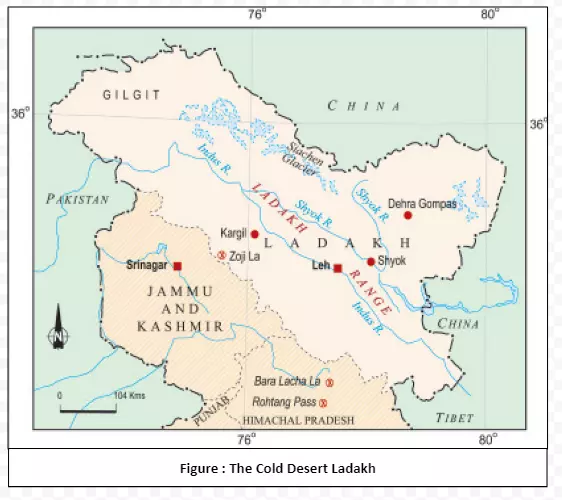![]() 29 Nov 2023
29 Nov 2023
Nestled in the northernmost part of India, Ladakh unfolds a mesmerizing tale of life in the cold desert. With its stark landscapes and snow-capped peaks, this region thrives against the odds, showcasing resilient communities and unique cultures that have adapted to the challenging, high-altitude environment. Ladakh’s simplicity is a testament to the harmony between its people and the rugged beauty of the cold desert.

Ladakh is also known as Khapa-chan which means snow land. Drass, one of the coldest inhabited places on earth is located in Ladakh.
The Chiru or the Tibetan antelope is an endangered species. It is hunted for its wool known as shahtoosh, which is light in weight and extremely warm.
In this chapter, we explored Koeppen’s climate classification system, delving into the diversity of climates around the world. We also examined life in tropical and subtropical regions, highlighting the unique challenges and biodiversity found in these areas. Finally, we discussed the global implications of climate change, underscoring the urgent need for collective action to address this pressing issue, all while considering the context of the cold desert and its relevance to safeguard our planet’s future.
<div class="new-fform">
</div>